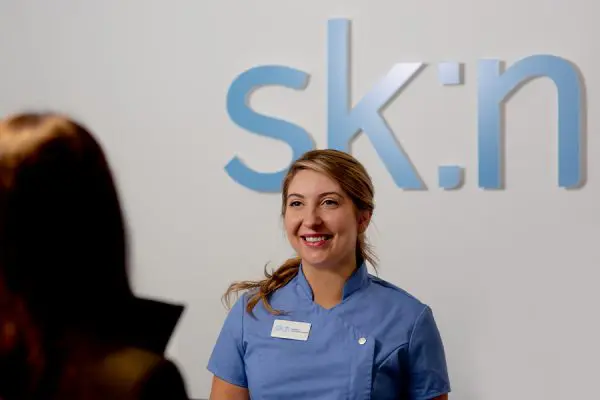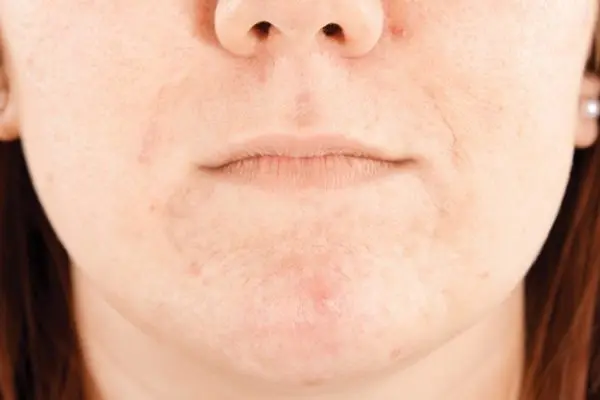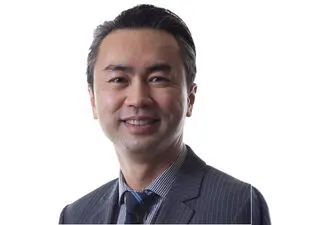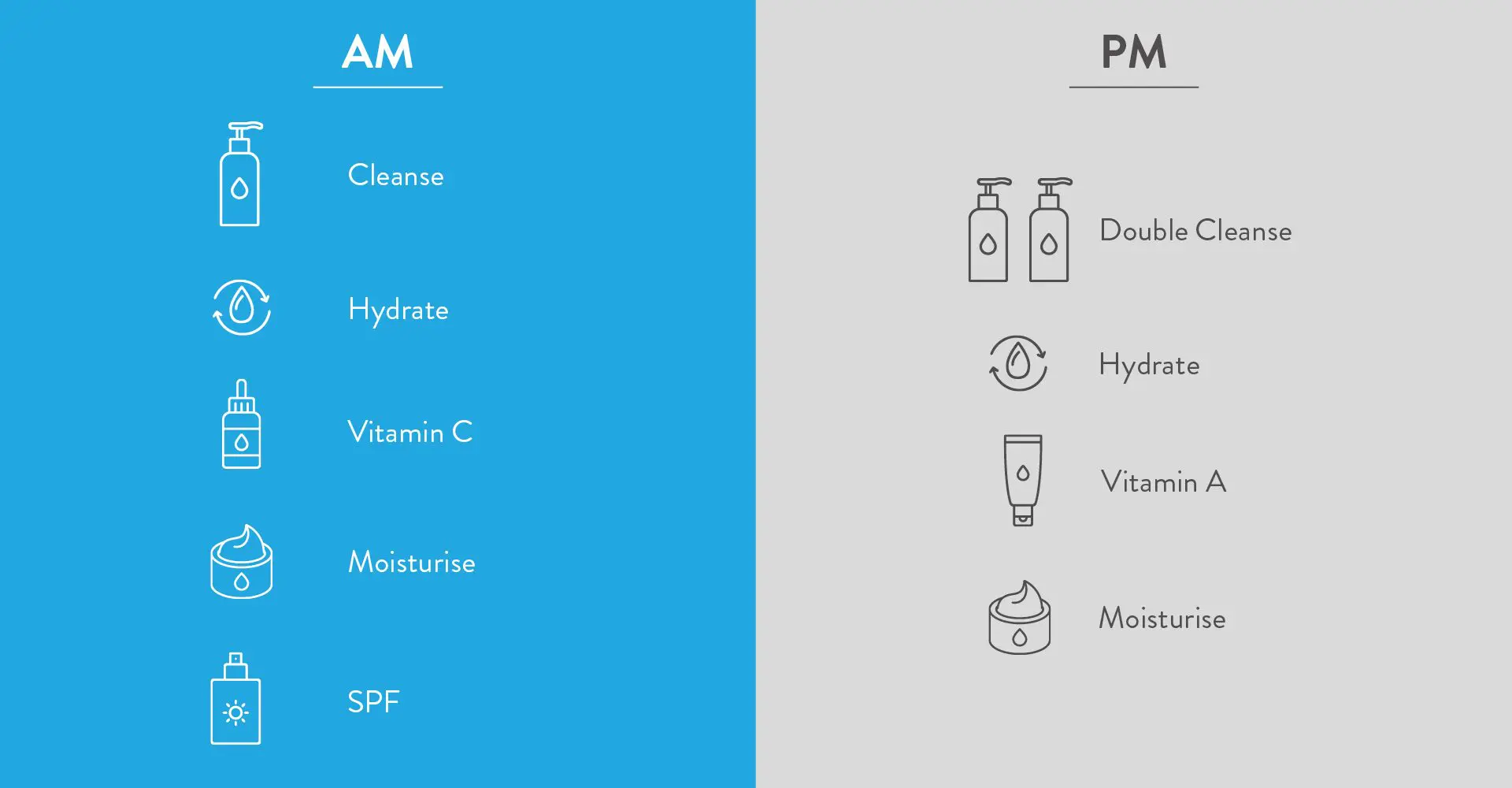Anti-ageing injectables prescribed by our healthcare professionals
Over 50 leading dermatology and aesthetic clinics across the UK
Book a consultation at sk:n Chester
Aesthetic and anti-ageing treatment in Chester
Injectables and other aesthetic treatments are popular non-invasive cosmetic treatments to reduce the signs of ageing.
Anti-ageing treatments at sk:n include skin treatments such as chemical peels and HydraFacial, delivered by our skin experts, and non-surgical cosmetic treatments like anti-ageing injectables and laser resurfacing with a doctor or nurse prescriber.
Injectables offer non-invasive solutions to the signs of ageing, including treating lax or sagging skin, loss of volume in the mid face, jawline or lips, and treating lines and wrinkles. Two of our most popular treatments are dermal filler and Profhilo.
Book an anti-ageing consultation in sk:n Chester where a doctor, nurse or medical practitioner will assess your skin concerns and goals, and prescribe the appropriate treatment plan for you.

Acne treatment before and afters
 Before
Before
 After
After
The expert medical team at sk:n in Chester
sk:n is the UK’s leading acne, skin, dermatology, aesthetic and laser clinic, with over 30 years’ experience helping millions of clients rediscover confidence through better skin.
Proud to be home to more leading consultant dermatologists, doctors, plastic surgeons, nurses or therapists than any other dermatology service provider, sk:n has over 450 medical professionals helping our clients.
Your journey starts with you. Our team in Chester clinic will discuss the best acne treatment options to find a solution to your skin concerns.
sk:n is the UK’s leading acne specialist clinic
Unrivalled acne care for 1000s of clients per year
Treatment with a medical practitioner, nurse or doctor
Industry leading training and safety regulations
Frequently asked questions
What is acne?
Acne is caused when the hair follicles in your skin become inflamed or blocked with bacteria, oil or dead skin. Each pore on your skin leads to a hair follicle and sebaceous (oil) gland. These oil glands release sebum (oil) which travels up the hair, through the pore and onto the surface of your skin. If the sebaceous gland over-produces oil or there is excess production of skin cells, this can cause a build-up in the follicle, blocking pores, attributing to bacteria growth and acne formation. Poor hygiene actually doesn’t cause acne, however, cleansing your skin daily and exfoliating weekly can help pores from becoming blocked.
There are several different types of acne, which are acne cosmetic, acne mechanica, acne conglobta, excoriated acne, acne rosacea and steroid acne. The lesions can present themselves in the form of closed comedones (or whiteheads), open comedones (blackheads), pustules, papules, nodules and cysts.
What causes acne?
Puberty and hormonal changes are the most common factors. Stress can also aggravate acne, as well as a poor diet, the skincare products you are using, or it could simply be down to genetics. Women are much more likely to suffer from acne due to hormones – this includes pregnancy, during your period, or if you suffer from Polycystic Ovarian Syndrome (PCOS).
Can acne be cured?
There is no definite cure for acne. Our aim is to improve and control your symptoms as best we can. Acne can sometimes take a long time to clear, so we’ll work with you and your symptoms continually to find the best course of treatment, but we do see some clients who see amazing results in just a few weeks.
How do you treat severe acne?
Your doctor or nurse will assess your skin during your initial consultation to recommend the right course of treatment. This could include a series of treatments such as salicylic and pyruvic Enerpeel, Medik8 peels, Isolaz or HydraFacial. Sometimes, acne treatment could also include antibiotics or hormonal therapies (the combined oral contraceptive pill for women can often be effective to treat severe acne) before you progress onto treatments in a clinic. It’s important to remember that the acne experts at sk:n will prescribe a personalised course of treatment that works for you, your skin and the acne type you are suffering with.
What does severe acne look like?
This will appear as a large number of papules and pustules on your face and possibly your chest and/or back. The nodules and cysts will likely be painful and you could be at risk of scarring, therefore it is essential that you seek medical advice. Read more about acne scarring.
Will acne go away on its own?
During teenage years, it can often go away on its own. Adult acne is much less likely to clear, but this will always vary person to person and you should always be aware of the risk of scarring. So if you are concerned, always seek medical advice.
What types of food help acne?
Acne is not caused by diet, but it can influence it. Diet can play a key factor in helping to prevent acne, by avoiding acne triggers or aggravators such as dairy and sugar, and adding highly nutritious and vitamin-packed food to increase the skin’s capacity to fight infection and heal itself. Some skin-friendly food choices include: whole grains, legumes, unprocessed fruits like apricots, blueberries, tomatoes and red grapes, and unprocessed vegetables such as carrots, avocado, sweet potato, beetroot, spinach and other dark green and leafy vegetables. Food containing zinc, vitamins A and E and antioxidants, such as quinoa, turkey, fish, oat milk and pumpkin seeds can also help the skin to fight acne.
How can I try to prevent acne?
Acne may not be preventable in many cases, but you should aim to look after your skin as best you can. Reviewing your skincare regimen at home, and finding the right products for your skin type can help to remove surface grim and dead skin cells which can aggravate congestion. Hydration can also play a key role in preventing acne, as dehydration can generate extra oils on your skin, ultimately, clogging your pores and creating new spots.
What products should I use to treat acne at home?
As the experts in skin, we want to make sure that not only does your treatment plan give you the best results, but you can carry on caring for your skin at home after treatment with a tailored skincare plan.
Your new skincare programme will ensure you see the best possible results from your professional treatments in clinic.
Everyone’s skin is different and will require different products, especially if you have acne, but you can apply some simple general rules to choosing your skincare routine every day, all year round. Always include a hydrating product like hyaluronic acid or B5, an antioxidant like vitamin C to protect against free radicals, a vitamin A (i.e. retinol or retinoids) which is anti-inflammatory and anti-ageing, and a daily SPF for protection against UVA, UVB and HEV (or blue light).
Your simple AM PM routine guide
Our skincare recommendations for acne
For oily skin
- sk:n Vitamin Rich Cleanser for oily skin – suitable for oily or blemish-prone skin, this AHA and BHA formulation gently exfoliates to dissolve excess oil
- Medik8 Natural Clay Mask – this clarifying mask detoxes the skin and eliminates impurities thanks to bentonite and kaolin clay, leaving a clear, radiant complexion.
Ideal for those looking for an introduction to acids and vitamin A, or for young skin
- sk:n Vitamin Rich Oily Cleanser for all skin types – this gentle cream formulation removes make-up, impurities and deeply cleanses, and the inclusion of vitamin A increases cell turnover, preventing pores from clogging.
- sk:n Blemish Control Serum – an instant treatment for developing spots, the anti-inflammatory and anti-bacterial properties means it’s ideal for use in the AM on break outs or congested areas, and reduces oil production.
- Heliocare 360 Gel Oil Free SPF50 – A light matte SPF gel that melts into the skin. Great for all skin types, especially oily, combination or spot prone skin.
Brilliant for persistent acne and dehydrated skin
- Synchroline Aknicare cream – ideal for acne-prone seborrhoeic skin.
Great for chest and back acne
- Medik8 Blemish Control Pads
Ideal for redness and sensitivity
- SkinCeuticals Phyto-Corrective Serum – a calming, hydrating serum that reduces irritation and itching. Suitable for all skin types, it can be used AM and PM after antioxidants but before creams and SPF
Great for mature skin
- SkinCeuticals Blemish+Age Defense Serum – oil-free formulation for reducing the formation of adult acne, and improving the signs of ageing
- SkinCeuticals Silymarin CF Antioxidant Serum – a vitamin C serum for oily and blemish-prone skin, which also refines texture, fine lines and skin clarity
For enlarged pores and congested skin
- Medik8 Crystal Retinal 3 – ideal for blemish-prone clients who are new to vitamin A, this prevents and corrects signs of ageing. Use in the PM
- SkinCeuticals Retinol 0.5 – ideal for ageing, pigmented or textured skin, it accelerates epidermal skin cell turnover, increases collagen production and smoothes skin. Use at night.
For the perfect skincare programme for your acne, speak to your expert at sk:n
How can I remove my acne scars?
Acne scars can be stubborn and seemingly permanent, but there are proven effective acne scar treatments that diminish the appearance of acne scarring. The best treatment for your skin will depend on the type of acne scarring you have. Before you have treatment, a sk:n dermatologist, nurse or acne practitioner should assess your acne scars and select the most appropriate treatment for you.
Are acne scars red?
There are various types of acne scars; some may be red, purple or pinkish in colour due to a build-up of melanin in the skin. If the area is red and is still inflamed and swollen, the acne is likely to still be active, so we would need to treat that before treating scarring. A dermatologist will be able to advise you about effective treatments for active acne, which may help to minimise the risk of acne scarring.
Are acne scars permanent?
Usually, the reddish or brownish acne marks that are left behind after pimples clear up will fade with no need for treatment. However, severe acne can leave you with scarring that does not always fade, and picking or squeezing acne can also increase the risk of scarring.
Do acne scars go away?
Some scarring may heal and eventually go, depending on the severity. There are three types of scarring: ice pick scars (small deep holes), rolling scars (uneven skin) and boxcar scars (craters in the skin). There are several types of acne scarring treatment at sk:n that we recommend, to stimulate the skin’s natural healing process and encourage cell regeneration and collagen production; your doctor may recommend microneedling, which, depending on the severity or location of your scarring can be delivered by a senior practitioner, nurse or doctor. We also sometimes recommend laser resurfacing with an experienced sk:n doctor or dermatologist, such as Fraxel®, C02RE, or Erbium Yag.
Request a callback
One of our friendly sk:n advisors will call you to book your consultation.
- More than 450 consultants, doctors, nurses and medical practitioners
- Regulated by the Care Quality Commission, Health Inspectorate Wales and Health Improvement Scotland
- Partner of the NHS
- Rated excellent by our clients on Trustpilot
- Strict safety and care protocols
See all our Clinics in Chester
Chester Vicars Lane Opening Times
Monday
Closed
Tuesday
10:00 - 20:00
Wednesday
10:00 - 20:00
Thursday
10:00 - 20:00
Friday
09:00 - 17:00
Saturday
09:00 - 18:00
Sunday
Closed
Clinic Address
1 Vicars Lane, Chester, Cheshire, CH1 1QX
Telephone
Finding us
You’ll find us at 1 Vicars Lane, which can be easily found by car, public transport and on foot. The nearest car park is Pepper Street which is five minutes away from our clinic and takes you past a site of cultural heritage: the Roman Amphitheatre. The train station is a 10 minute walk away and the closest bus stop is Vicar’s Lane.




